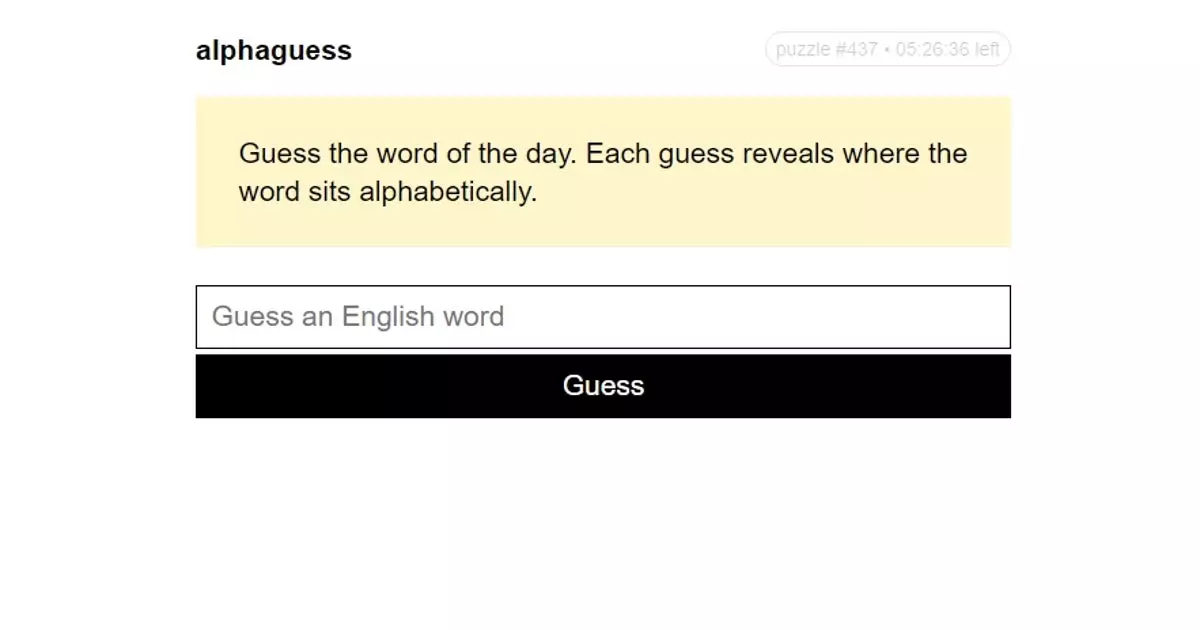In today’s fast-paced world, our productivity is constantly being challenged by various distractions, ranging from social media to work emails. Enter browser games like Scrambled Maps and Alphaguess, which are taking this notion of distraction to a whole new level. While these games might initially appear to be frivolous, their undeniable draw lies in their simplicity and the brief respite they offer from our everyday routines. With a mere fifteen minutes of diversion, these games allow a fleeting escape from the demands of work.
Alphaguess, a quaint puzzle game, requires players to guess a hidden word based on their understanding of the English alphabet. The game engages users in a guessing challenge where each incorrect attempt offers feedback on whether the correct answer comes before or after the guess in the alphabet. Despite its straightforward rules, players often find themselves grappling with the nuances of vocabulary and alphabetic order, which can lead to entertaining yet frustrating gameplay. It took one player 26 guesses and several minutes to discover today’s word—demonstrating that even the simplest puzzles can stump us.
Although games like Alphaguess may not invoke the same level of lateral thinking required in more complex puzzles, they still foster a unique kind of strategic thinking. The initial choice of a word like “muddle” shows a common strategy: starting from a central point to efficiently narrow down possibilities. Once players identify the first few letters, they often experience a mental bottleneck—trapped between what they know and what they still need to uncover. This paradox highlights a striking aspect of such games: the tension between challenge and ease, as players become addled with choices while navigating a plentiful sea of the alphabet.
These games are often dismissed as trivial; however, they ignite a certain joy reminiscent of childhood road trip games, like counting license plates or spotting specific vehicles. The carefree nature of these puzzles can be immensely freeing—allowing a moment of collective focus that contrasts sharply with the weightiness of mundane tasks. While the outcomes may feel predetermined given enough guesses, the journey to that solution becomes an engaging experience, representative of a world more focused on collective participation than solitary endeavor.
Emerging from such games is a sense of community. Players often share their experiences and successes (or failures) with others, forming a virtual bond over shared trivialities. In this context, Caroline Crampton’s newsletter serves as an excellent conduit for sharing these digital amusements. By linking to both Alphaguess and Scrambled Maps, she invites a broader audience to partake in this playful ritual that—while ostensibly counterproductive—can serve as a refreshing mental break.
Ultimately, as we navigate the modern landscape filled with distractions, games like Alphaguess may challenge our perception of productivity itself. In small doses, these diversions can refresh our minds, thereby enhancing our ability to tackle the more serious tasks that await us.

